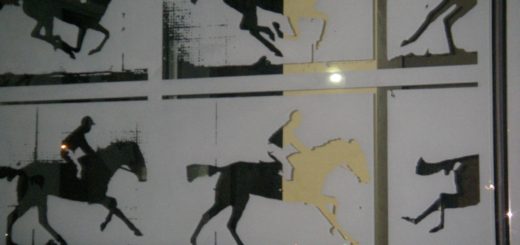Reruns: Carl Kolchak
This is part of the reruns series of guest posts by guest writer Jason Sparks
CARL KOLCHAK
Darren McGavin on Kolchak: The Night Stalker, ABC, 1974-75.
He’s still alive, actually, and can be found not terribly far—and at the same time, terribly far—from his old stomping grounds in Chicago. There is a small, surprisingly well-run nursing home in DeKalb, Illinois, and “Mr. Carl” (as the orderlies call him) has been there now for twenty years. They love Mr. Carl, because he’s never boring: wears hospital scrubs and Goodwill shirts, but still insists on that damned hat and coat. Interviews everybody, talks into his “tape recorder”—it’s a broken stapler no one has the heart to take from him. When he sundowns, he shouts for someone called Vincenzo, whoever that is, and he always gets so upset because he thinks it’s snowing. Always, this—could be August and 90 degrees, man thinks it’s snowing.
Carl Havel Kolchak was one of eight children born to Thomas and Marie Kolchak; Thomas managed the freight depot in their hometown of Bettendorf, Iowa, and Marie tried to make sure her children learned everything they could, never missed an opportunity. This was shame, actually—Marie had come from the Banacek family, well-to-do Poles connected to the shipping industry out of Gdynia, and her family never missed an opportunity to look down on these working-class Kolchaks from the wrong side of Krakow. Thomas perceived their judgement, and it led to manic fits of anger; the whole family learned to fear him. Carl was born in 1931, during the height of the Depression, which further stressed every already-dysfunctional family in America, and thus sent the Kolchak home into years of chaos.
Marie, as I said, made sure her children could learn, and nurtured every opportunity she could, encouraged every talent any of her children showed as much as a glimmer of; Carl, she discovered, could draw. Off to himself, avoiding the wrath of a father who wanted a drink but couldn’t get one on a Sunday, Carl could recreate every page of the glorious, full-color Sunday funnies from the Bettendorf Enquirer, which, part of the old Kane syndicate, offered all the best of what we now call Golden Age comics. In the days before school lunches, Karl could often buy his own food after selling his incredible renderings of Flash Gordon, Buck Rodgers, et alia to his school mates. He was able—at Marie’s prompting—to parlay this skill into a position with the Enquirer when he was but a child; an older writer would create the jokes for the editorial cartoons, and Kolchak would draw them.
Unfortunately, that meant that Carl was in the newsroom in 1945, when the AP wire delivered the news that the Indianapolis had been sunken. Among the confirmed dead was SFC Francis Kolchak—Carl’s older brother, the family rock. Carl knew in a moment that this would blow his home apart, and, in what later generations would know to call a panic attack, he ran from the newspaper office, towards the freight yards—WAIT! DAD! No, no, this is Thursday, he’ll be in the staff meetings that he hates so badly, since he has to sit through them white-knuckle sober—and so, ducking any porters or bulls that might have seen him, Carl slipped into a boxcar. Southern Gives A Green Light To Industry, the side of the car proclaimed; today, Southern gave Carl Kolchak escape.
Only it wasn’t actually headed in a southern direction. It was headed East, to the big, central yards of Chicago, where Carl stayed, aware that he could hide from his family in a city this big. The Sun-Times liked his cartooning, got him to try his hand at features and interviews; in this fashion, he put himself through University of Chicago, a few credits at a time. He graduated in 1959, and soon after, found himself at INS, where he would carve out a career that lasted some forty years.
Was it always weird? Not entirely. His editor, the gruff Vincenzo, saw in Kolchak a reliable crime-beat reporter, which is of course a tireless position in Chicago; Carl was, in fact, INS’s man at the notorious Democratic Convention in ’68. That’s when it began. Vincenzo expected the same stories everyone else was getting, about the violence and the protests; he got stories about the violence and the protests, but these were different. These stories included some nonsense about an eccentric Englishman pointing a screwdriver—a screwdriver, of all things—at the crowds, whereupon they would suddenly become far more violent.
No, that’s not quite it. The screwdriver belonged to an eccentric Brit, but had been taken from him by “an individual who would only say”, as Kolchak himself put it, “he was with the Federal Government…but would disclose nothing else. Nothing.” Kolchak never even got the Fed’s name—just described him as a man with a hangdog expression and a constantly present Marley cigarette in his mouth. Vincenzo was quite ready to fire Kolchak over this, when he was approached at his own house by a man who, whether Vincenzo wanted to deny it or not, fit Kolchak’s description exactly. “Run the story, Mr. Vincenzo”, the government man said, “editing, of course…for prudence. Keep this man around…he will see other things. Run them, don’t run them, your call—but keep me posted. You’ll know when to share the stories with me.” He left an address, a post office box in Quantico, Virginia.
Vincenzo never saw the man again, but, throughout the Seventies, he had opportunity to send clippings (and unpublished manuscripts) to that PO box. Vampires, lizard men, robots, minor Aztec deities…what in God’s name had gotten into Kolchak? But that ominous, terrifying man seemed to want him to stay on. Stay he did, for decades, until 1994, when Kolchak went, on assignment, to Washington State, and spent the rest of his career sending dispatches from the field—he was reporting on, or possibly stalking, two FBI agents who were apparently seeing monsters and spacemen as well (or, as Vincenzo assumed, were as out of their damned minds as Kolchak apparently was). Vincenzo’s heart gave out in 1996, so he never knew; he never saw Kolchak’s last story, the rambling, disjointed narrative sent from Boston, the one about the kid who collected snow-globes, the one whose final sentence, repeated over and over, was WE ARE ALL FOOLS! No one saw it, save for the government agent, who found Carl, incoherent and terrified, and took care of him. He’s taken care of to this day, docile as he eats his Jell-O and stares at reruns, full of Thorazine and Halidol, courtesy of the Department of Defense. He’s harmless now, unless he’s sundowning.






















